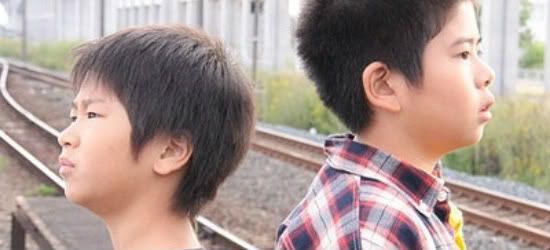
The frustrating thing about most modern “kids films” is that many filmmakers seem like lost balls in tall grass when it comes to portraying what makes children tick. Perhaps it’s tougher than we imagine to capture the youth/kid experience, but is it just us or does it seem like nearly all child characters in movies exist in some bizarro world where they’re smarter than the all the adults, know just the right thing to say at every moment and hardly ever act like, you know, kids? (See every American indie and Hollywood rom-com from the last 10 years for examples of this annoying, ridiculous trend). That’s why, when a thoughtful, intelligent director takes the reins of such a film, one that actually remembers and respects what it was like to be a kid, the result can be so refreshing. In the best examples of the genre from recent memory — “Where the Wild Things Are” and “Super 8” (which, this writer only found to be half a great movie, the great half being the portion involving kids being kids, making movies; it’s impossible to deny the skill of those actors and their characterizations) — the filmmakers decided from the outset to make a proper film first and foremost. The fact that the story is played out with children as our main characters is almost a moot point. Almost.
Take “I Wish,” the latest from Japanese filmmaker Hirokazu Koreeda (“Still Walking,” “After Life“). With this film, he does what the aforementioned titles do as well and proves that kids movies don’t have to be dumb or only for the ADHD-addled mind of an adolescent. In fact, the film is made for adults. It just happens to be from the point of view of children, and in many ways, it captures the awkwardness, fun, fear and mostly carefree spirit of childhood. Family dynamics, friendship, the joy of food, brotherhood, divorce, separation, longing for connection — who can’t relate to some or all of those themes? They’re explored by Koreeda with such a deft, nuanced hand that it seems as if the gifted filmmaker must know something we don’t. It’s probably more realistic that he’s just a good listener; he pays attention to the little things. One thing’s for sure: he clearly knows how to work with child actors, and he’s successfully filtered all those themes through the perspective of children.

The film opens on a striking image, an erupting volcano in the distance spewing ash into the sky as Koichi looks on from the porch of his house. He’s been living in Kagoshima with his mother and grandparents. At the other end of Kyushu, in a town called Fukuoka, is Koichi’s younger brother Ryu, who lives with his rock musician father. Their parents have been separated for six months. The young boys are dealing with the situation as best they can, making friends of their own and going to school, but they yearn to reunite. Some of the most touching, never-treacly moments (in a film chock-full of them) come from the many cell phone conversations between the brothers. They’re on opposite ends of the same island, but they may as well be worlds apart.
The boys hear a legend that their wishes will come true if they witness the first north- and south-bound bullet trains passing each other. When the western extension of the high-speed train network opens, Ryu and Koichi hatch a plan (with, of course, some friends along for the ride) to meet in Kumamoto where each kid can make their wish. The brothers want their parents to get back together so they can be a family again.
Koreeda is clearly a filmmaker who is interested in, and understands, the complex web of familial relationships. He beautifully portrays the entire family unit, giving them each various subplots. And even better, he gives the side characters (mostly friends of the family members) their due as well. Each character is fleshed out, even though some have very little screen time, so nobody is a just cog in the machine to push the main narrative. But most evident in “I Wish” is his care and respect for the brothers. It’s not surprising the two young leads are in fact real-life brothers (Koki Maeda and Oshiro Maeda, who steals the show as the cutest, most resourceful goddamn kid since Bruno in “Bicycle Thieves“), and it must have helped immensely in achieving this realistic and sweet rendering of sibling cooperation.
It’s at the film’s conclusion, when you may very well be reaching for a hanky to wipe those tears away (this writer’s eyes were welling up; must have had an allergy issue or something), that Koreeda plays his most stylish cinematic hand. A quick succession of images — some still, some barely moving — are cut together in an absolutely beautiful montage that works as the perfect visual for the film’s biggest theme, which up to that point was mostly hidden deep under the surface of the text. Often in life, especially in childhood, it’s the small moments that count. Running to school with your friends, eating sponge cake with your grandpa, picking seeds from a flower, riding on trains. That’s the good stuff. Koreeda knows this, and he makes a great case for this philosophy. His greatest gift to the audience here is allowing us to witness this realization as it dawns in these children. [A-]





Vancouver International Film Festival. It doesn\’t get the press that Toronto gets, but it\’s a real gem of a fest.
This is indeed a wonderful movie. Glad to see it reviewed here.
What is VIFF